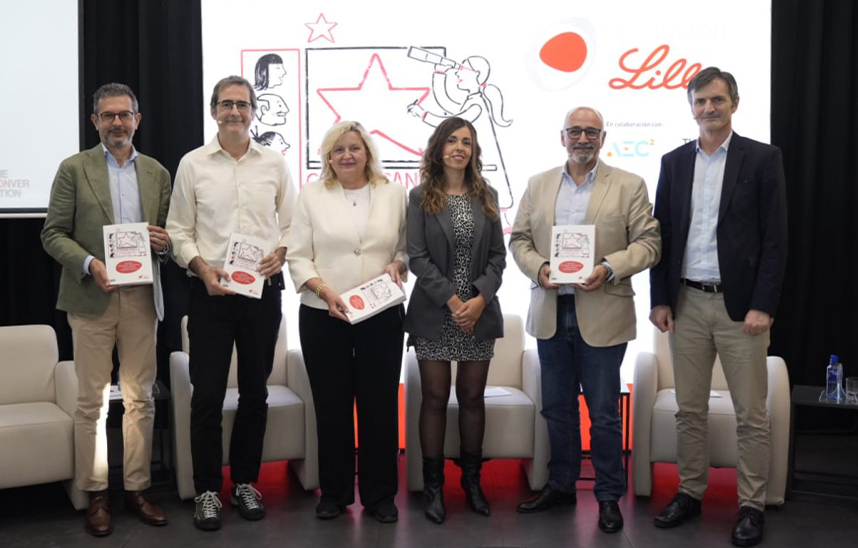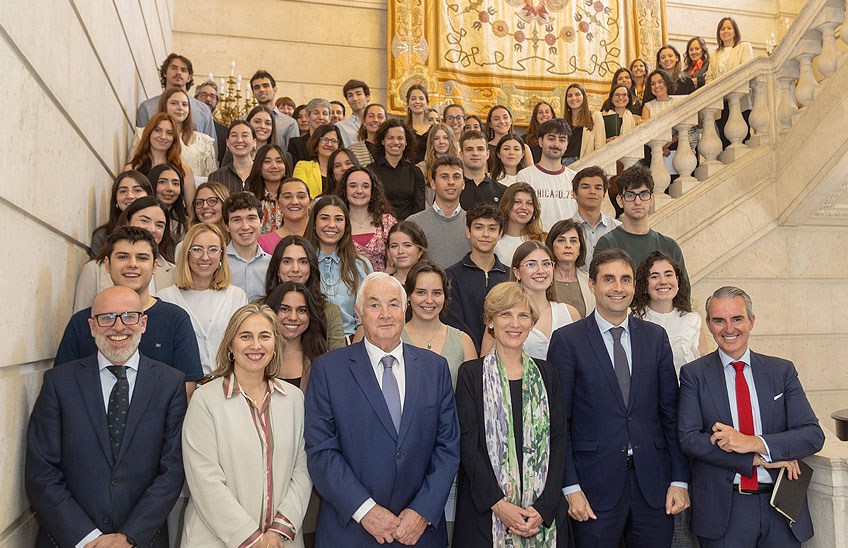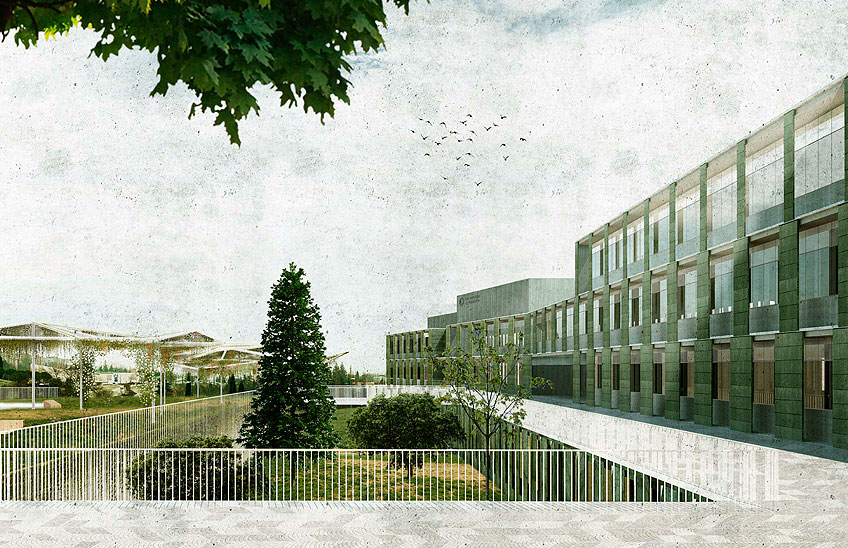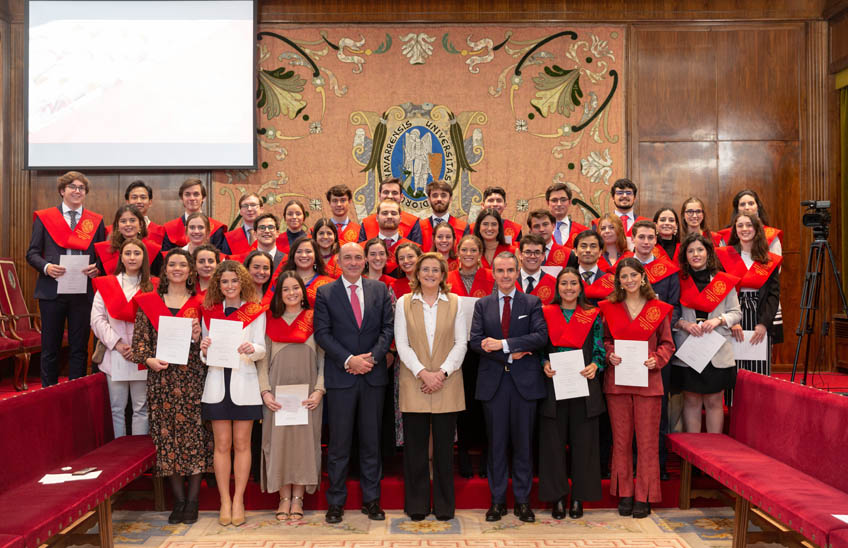Ramón Salaverría, professor at the University: "Hoaxes spread like viruses, through the people who are dearest to us".
A study on misinformation in health is presented at the headquarters of the BBVA Foundation (Madrid), which has financed the projectof research"RRSSalud".
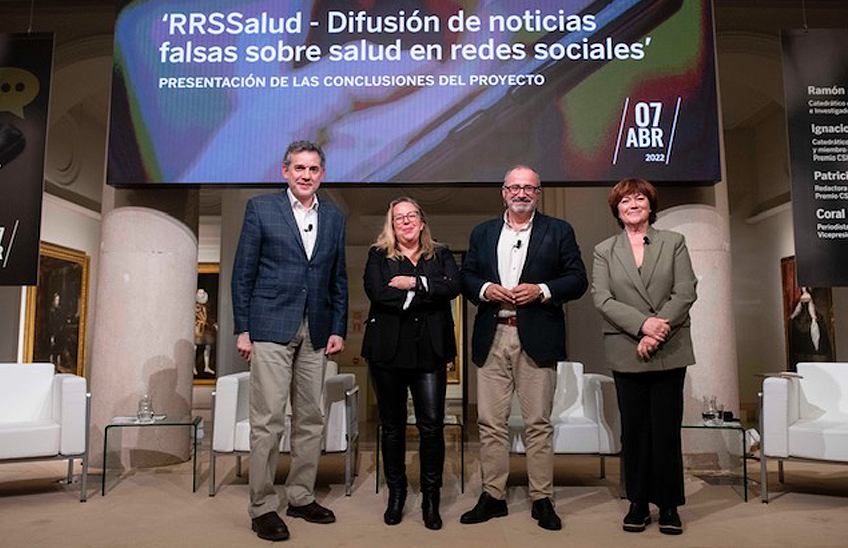
FotoBBVA/RamónSalaverría, Patricia Fernández de Lis, Ignacio López Goñi and Coral Larrosa, participants in the workshopof presentationof the "RRSSalud" study.
08 | 04 | 2022
"Hoaxes spread like viruses: through the people most dear to us, through social networks and messaging applications, which disseminate personal and erroneous interpretations of health issues. We are facing the pandemic of lies, the other great disease of today's society". This was stated by Ramón Salaverría, Full Professor of Journalism at the University of Navarra and director of project of research "RRSSalud", during the presentation of a study on health disinformation.
The projecthas been carried out over the last two years by researchers from the University of Navarra and the Barcelona Supercomputing Center, thanks to the support of the BBVA Foundation's programme of Grants for Scientific Teams researchat areaof Economicsand Digital Society.
Science to be freer
Ignacio López-Goñi - Full Professor in microbiology at the University of Navarra, science communicator and researcher of group- also took part in the event, which was held at the headquarters of the BBVA Foundation in Madrid, and emphasized that "this pandemic has highlighted the importance of scientific knowledge dissemination , a necessary task that must be carried out with responsibility, rigor, clarity and transparency, in order to contribute to the scientific culture of the people, which will make all citizens less manipulable, freer and, in final, we can live in a more democratic society".
Journalists Patricia Fernández de Lis and Coral Larrosa completed the colloquiumwhich took place after presentation. The former, editor-in-chief of Science at the newspaper El País, and the latter, a journalist specialising in science and health at Telecinco news and vice-president of ANIS (associationNational Association of Health Informers). Both highlighted the time they devoted during the pandemic to getting good information, checking and using people and institutions from reference letterto report as truthfully as possible.
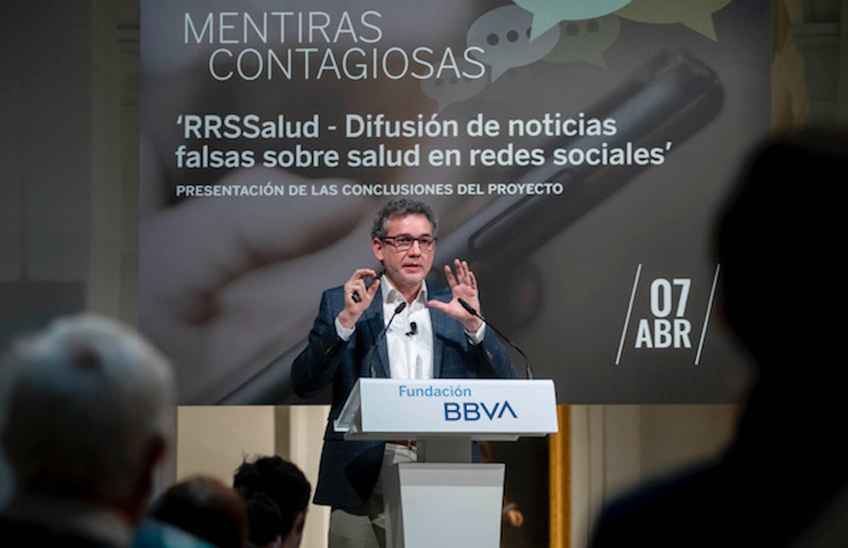
Ramón Salaverría, Full Professor of Journalism at the University of Navarra and director of project of research "RRSSalud" PHOTO: Cedida
Two years of researchon false health information
The RRSSalud team has worked on this projectfrom March 2020 to April 2022. In these two years, it has investigated the typology and dynamics of the dissemination of false health information on social networks in Spain during the first months of the pandemic. To do so, they analysed some 530 articles verifying hoaxes published by the platforms Maldita, Newtral and EFE Verifica - at the time the only three Spanish verification organisations that had obtained the accreditationfrom IFCN, the main international seal of quality for fact-checkers -, with the financial aidof big data techniques implemented with the Barcelona Supercomputing Center, the National Supercomputing Centre.
In addition to the scientific production, which has resulted in at least five articles in scientific journals, the grouphas produced informative material, which is availableon the website guideinternship called "Contagious Lies" that analyses the issue and makes practical recommendations to the public not to be fooled by hoaxes; a podcast channel and an "express test" that allows to identify the level of fragility staffin the face of disinformation.
The projectRRSSalud has served as the basis for a larger-scale international research, IBERIFIER, awarded to Professor Salaverría's groupby the European Commission in 2021 with a budgetof 1.47 million euros. In IBERIFIER, the University of Navarra leads a consortium of 23 institutions from Spain and Portugal, including the BSC-CNS. Its aim is to "explore to what extent disinformation also permeates the ecosystem of digital journalistic media, which in Spain currently reaches almost 3,000 titles, or if, on the contrary, these media function as dams or alarm systems against this disinformation," explained Salaverría. To achieve this goal, the researchers will apply artificial intelligence and big data methods.

